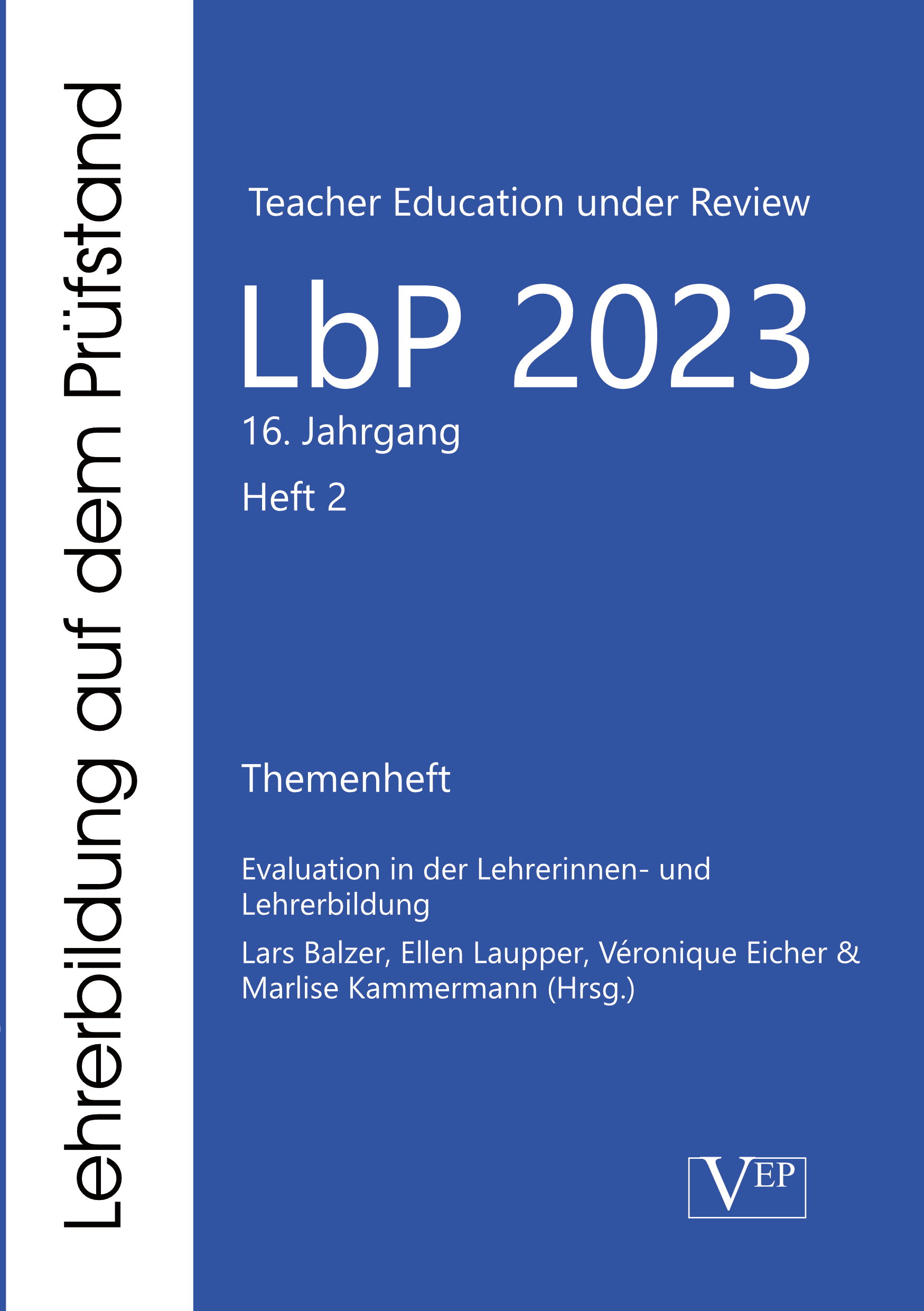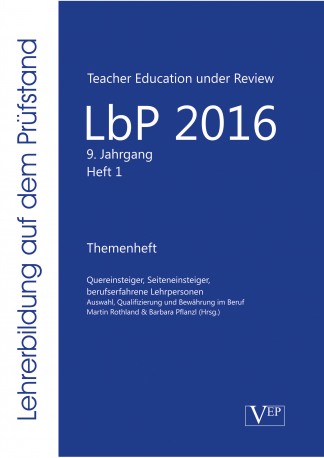Inhalt
Mentoring kann beginnende Lehrkräfte bei diversen Herausforderungen ihres Berufseinstiegs unterstützen. Zugleich haben viele beginnende Lehrkräfte keinen oder nur unzureichenden Zugang zu qualitativ hochwertigen Mentoring-Angeboten. Das Projekt NEST (Novice Educator Support and Training) implementiert in sieben europäischen Bildungssystemen ein Mentoringprogramm, das sich an Lehrkräfte an sozial benachteiligten Schulen richtet und dabei versucht, Unterstützung durch die Herstellung von Adaptivität auf unterschiedliche Schulkontexte und insbesondere die Bedürfnisse mentorierter Lehrkräfte zu gewährleisten. Im vorliegenden Beitrag soll ein Einblick in das Evaluationskonzept des im Projekt zentralen Mentor*innen-
Trainings gegeben werden. Es wird herausgearbeitet, wie das Projekt mit der Herausforderung umgeht, gemeinsam mit lokalen Partnerorganisationen Verfahren für eine Evaluation in den Kontexten unterschiedlicher Bildungssysteme zu entwickeln, die Perspektiven sowohl von Mentor*innen als auch Lehrkräften berücksichtigt. Das Evaluationsdesign und Ergebnisse zur Veränderung und Beurteilung der Praktiken von Mentor*innen aus drei kontrastierenden Bildungssystemen werden vorgestellt. Anschließend werden Konsequenzen für das Projekt und dessen fortlaufende Evaluation diskutiert.
Schlagwörter: Evaluationsforschung – Internationaler Vergleich – Lehrerbildung – Mentoring
Mentoring can support beginning teachers with various challenges of their career start. At the same time, many beginning teachers have no or insufficient access to high-quality mentoring opportunities. The NEST (Novice Educator Support and Training) project implements a mentoring program in seven European education systems aimed at teachers in socially disadvantaged schools, seeking to ensure support by creating adaptivity to different school contexts and, in particular, to the needs of mentored teachers. In this article, we provide insight into the evaluation concept for the mentor training that is central to the project. Furthermore, we show how the project deals with the challenge of developing methods for an evaluation in the
contexts of different educational systems together with local partners, which considers the perspectives of both mentors and teachers. We present the evaluation design and results on changing and assessing the practices of mentors from three contrasting education systems. Lastly, we discuss consequences for the
project and its ongoing evaluation.
Keywords: evaluation research – international comparison – mentoring – teacher training




